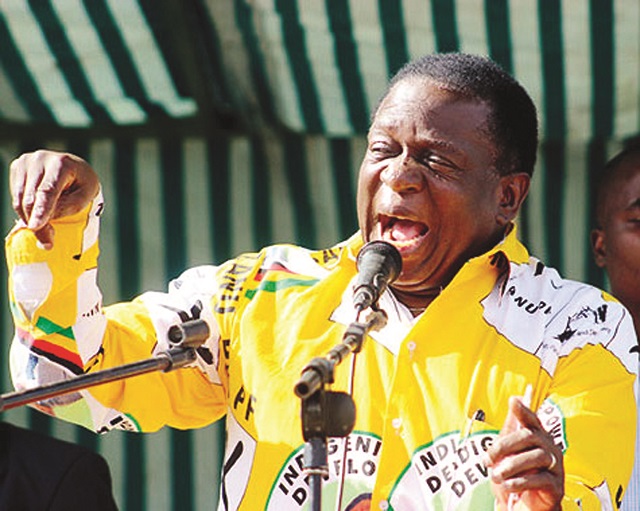Farmers should pool resources, export to China

Vice-President Emmerson Mnangagwa disclosed, at a recent agriculture forum in Harare, that a team of Chinese traders conducted a study a few months ago to determine the size of the country’s road-runner chicken population.
They established, he said, that all the road runners in the country are barely enough for one lunch in China.
At the 68th anniversary of the founding of the People’s Republic of China last week, that country’s Ambassador to Zimbabwe, Huang Ping spoke about a load of flowers that were delivered from here to Shanghai, the globe’s most populous city, but within a few hours they had been sold out. When Shanghai made a fresh order shortly after, Zimbabwe’s floriculture industry failed to meet it.
These two illustrations are testimony to the indescribable demand that China has for road runners and flowers. Taken more broadly, these demonstrate the immense export potential for more farm produce that our farmers can exploit in the Asian economy.
“China has huge demand for organic agricultural food. For example road runner chickens are priced at $25 each in my country. In the first half of this year Zimbabwe exported flowers to Shanghai Municipality in China and were all sold out and when the new order was made, Zimbabwe failed to meet that after all flowers were sold out. In short, Zimbabwe has exactly what we need in China and the price margin is unbelievable,” Ambassador Ping said.
Our business sector has tended to view China as a source of various products, chiefly electrical appliances, clothing and farm machinery but appear to not have taken the global economic powerhouse as a possible export destination of other items beyond tobacco.
Last year, Zimbabwe generated $926 million after exporting 163 million kilogrammes of tobacco with China importing 69 million kilogrammes of the crop and spending $565 million. The golden leaf is Zimbabwe’s biggest export to China. Other exports are some minerals and cotton.
VP Mnangagwa and Ambassador Huang’s exhortations tell us that China has an immeasurable appetite for products from here, including organic foods.
The Chinese are some of the world’s most health conscious people, they do not just eat anything. Apart from being health conscious they, like nationals in more developed countries, also have an immense appetite for the finer things in life — flowers and so on.
We take VP Mnangagwa and Ambassador Huang’s remarks as an open invitation for the local business sector, particularly players in the agriculture sector beyond tobacco to actively seek export opportunities in China. It is a rich country with the biggest population in the world at 1,4 billion. It also pays exceedingly well given that Ambassador Huang said a road runner can be sold for $25 yet we ordinarily buy and sell one here at around $4. An avocado retails at $2 in China, yet here it sells for around 20 cents. Yes, there are other costs involved but $25 for a road runner is simply irresistible.
“Last month, a team of agricultural experts from China visited Zimbabwe to conduct research on exporting citrus to China,” said Ambassador Huang.
“If everything goes smoothly, we will see Zimbabwean citrus on the Chinese market next year. We are confident that in the future, more organic and fresh Zimbabwean agricultural produce will be exported to China, more Chinese companies will invest in the agricultural area and our agricultural cooperation will produce more fruitful results.
“China has huge demand for organic agricultural food. In short, what Zimbabwe has is exactly what we need in China, and the price margin is unbelievable.”
Our growers need to start thinking very seriously about exploiting that huge and always-ready market which is willing to pay the top price for organic foods. Our agriculture sector is already organic so there would be no need to switch farm practices. They need to just produce more and adhere to high quality standards that the Chinese consumer demands.
Seeing that China is a big market, our farmers will need to form consortia for the purposes of exports, for them to pool their products together and stand a chance of meeting more substantial orders. Singly, they are very unlikely to be able to meet them. The Zimbabwe Commercial Farmers’ Union and Zimbabwe Farmers’ Union have to organise their members to begin exporting more to the Asian giant and earn more for themselves and the country.
The Government should be involved as well at various levels from stimulating production, standards and assisting farmers’ market access to China.








Comments